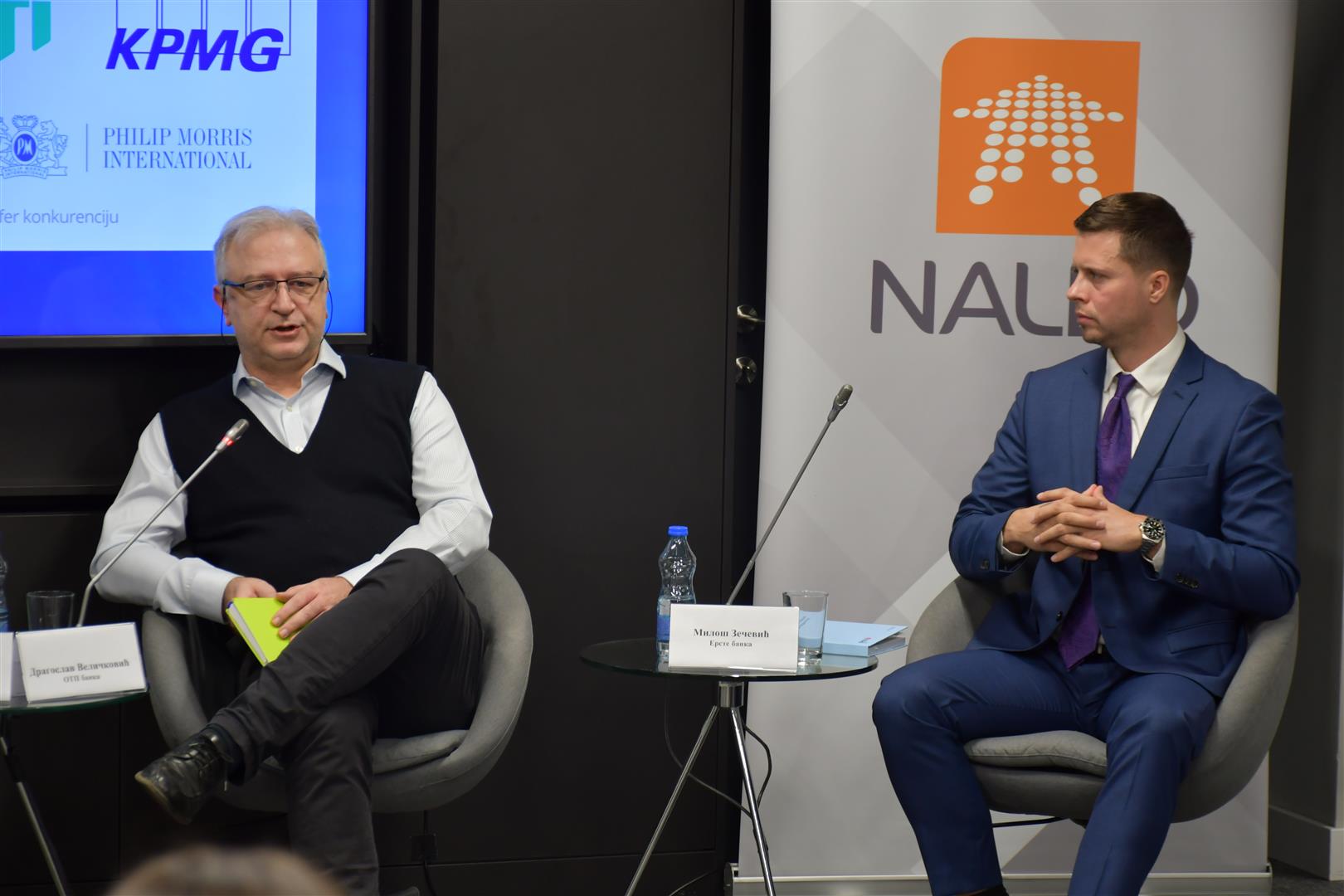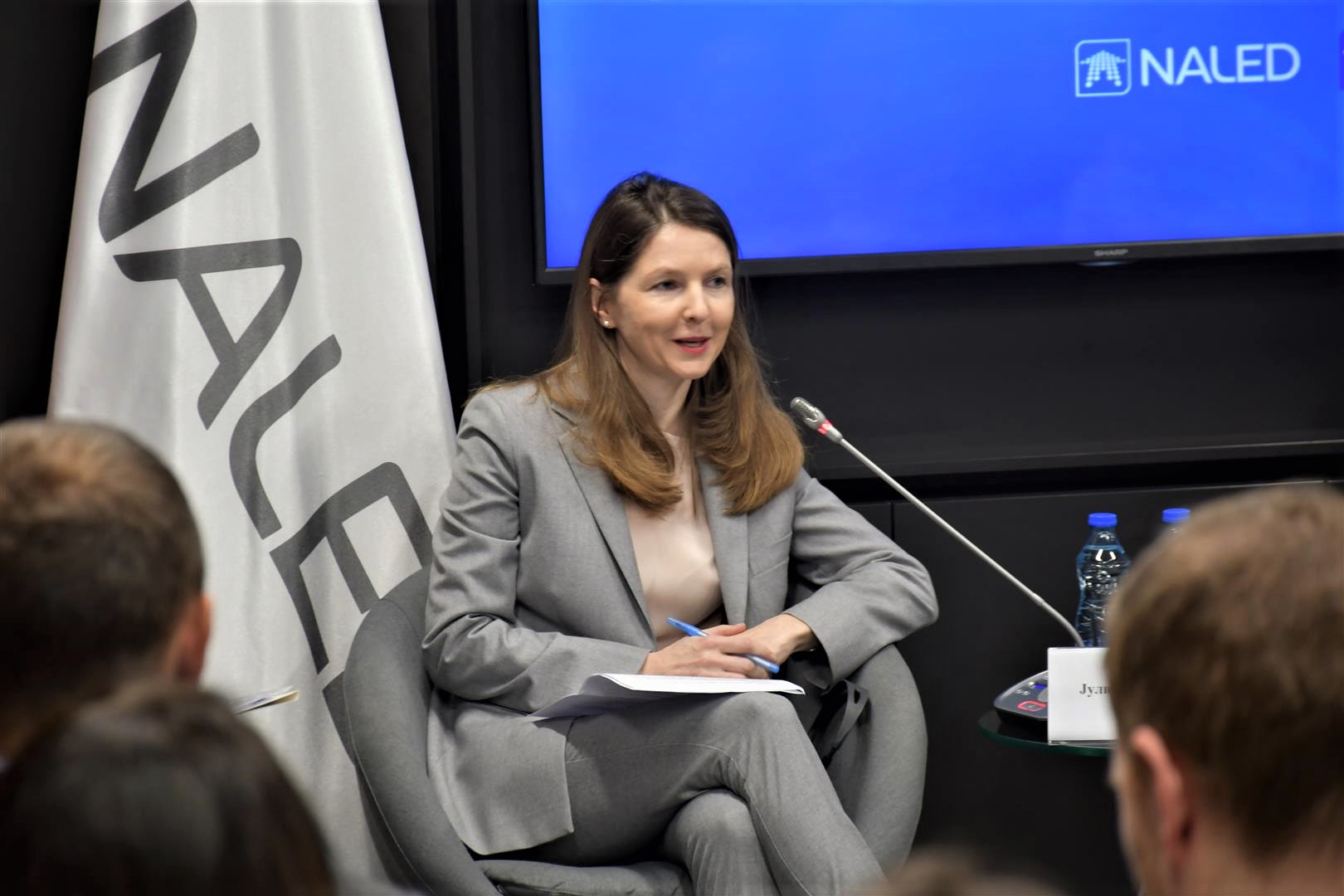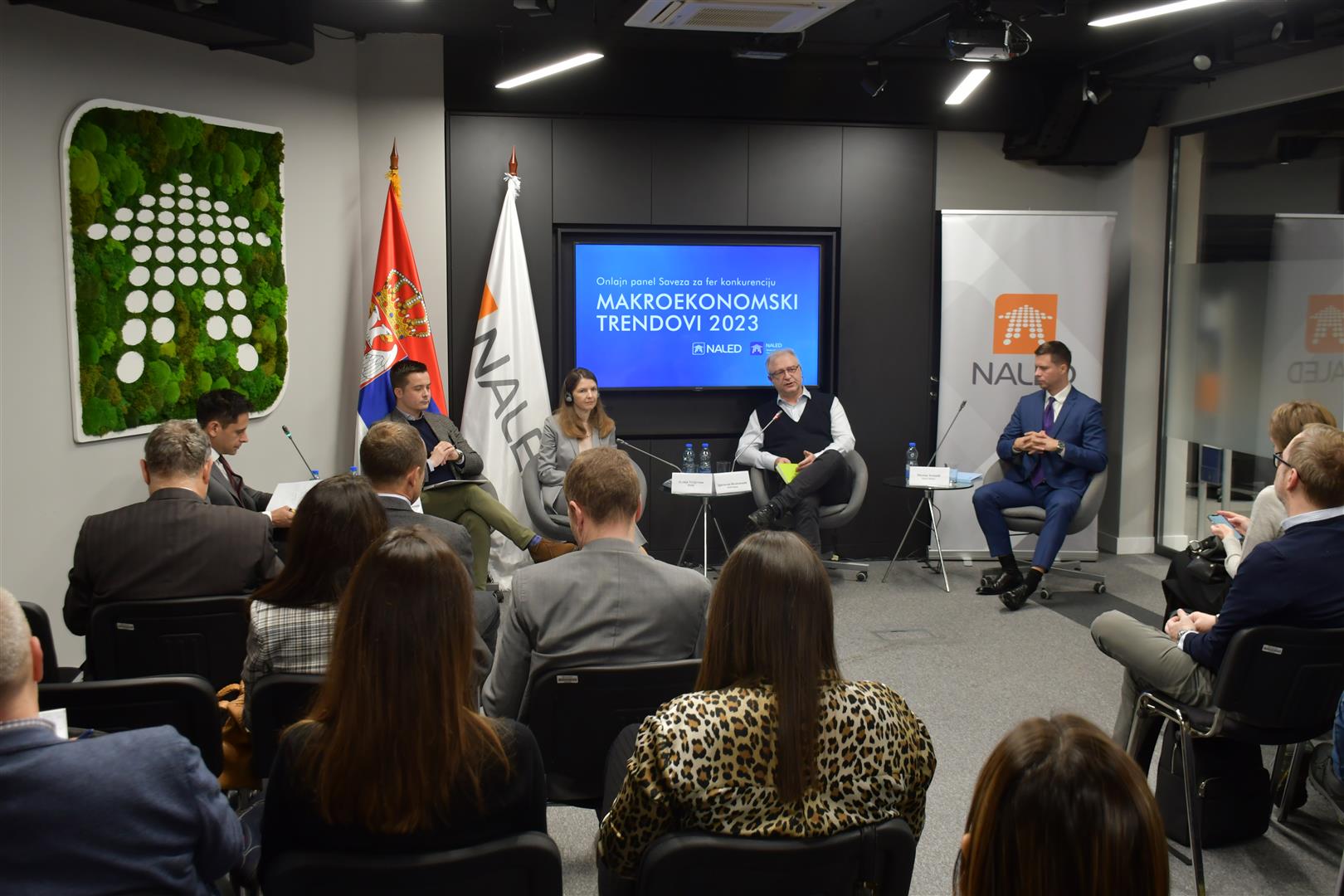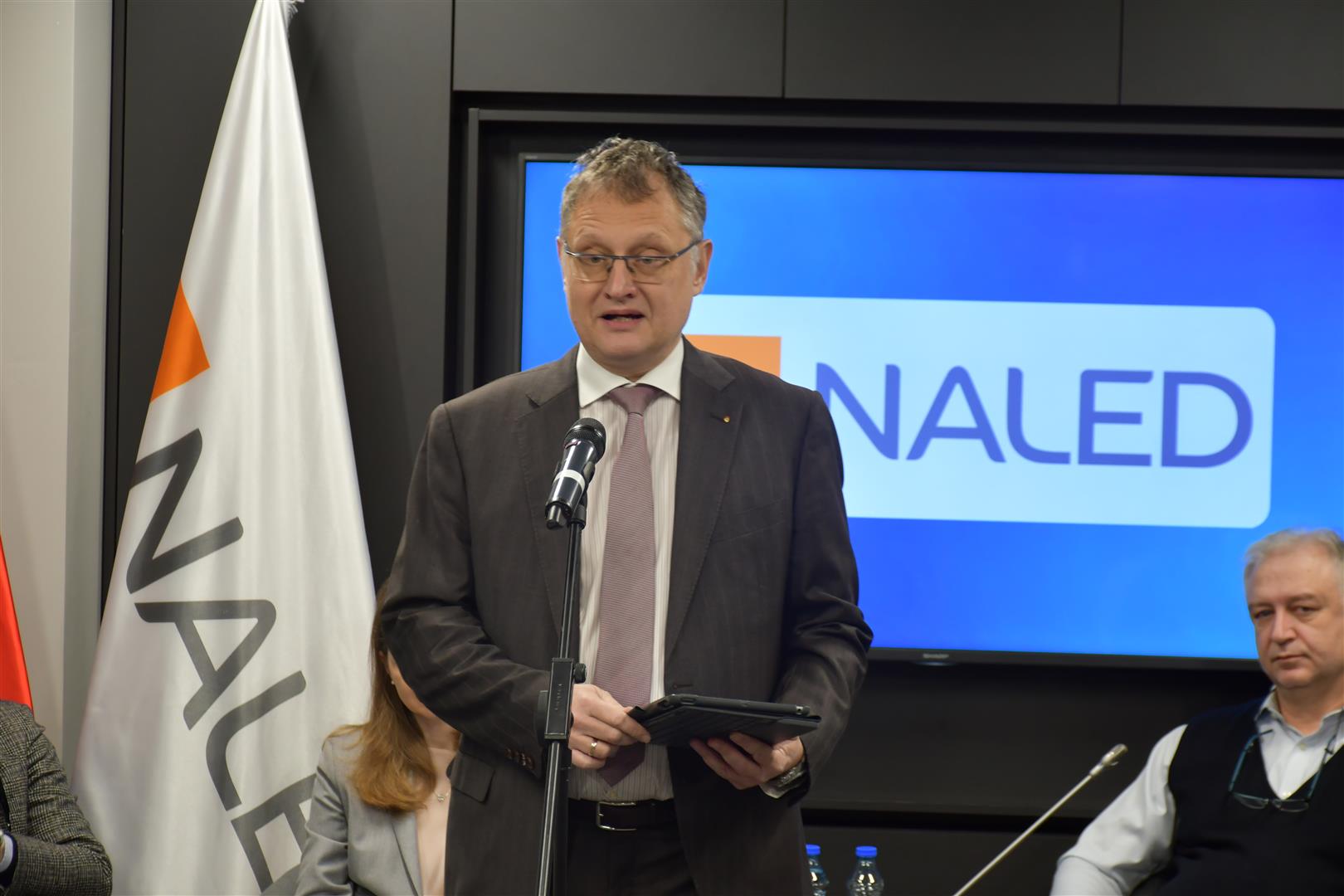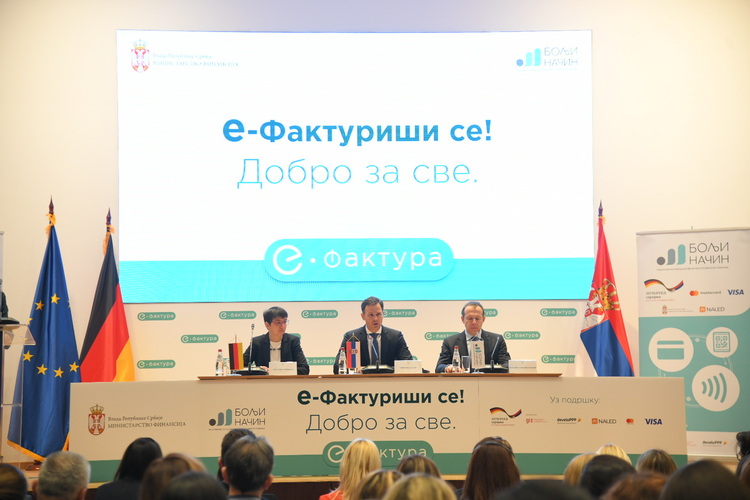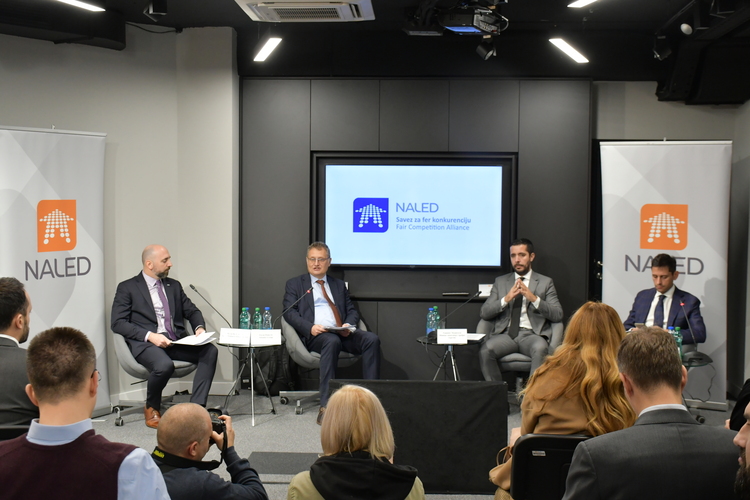IMF: We need the adoption of a new Program for countering shadow economy
Preliminary data from the NALED study on the extent of shadow economy in Serbia show that informal business is on the decline, but it is necessary to maintain the path of reforms and adopt a new Program for Countering Shadow Economy, in order to maintain that momentum after important steps such as the introduction of eFiscalization and eInvoicing - said Yulia Ustyugova, Head of the International Monetary Fund's office in Serbia, at the panel discussion "Macroeconomic trends in 2023", organized by NALED's Fair Competition Alliance.
According to her, the IMF predicts a decrease in the rate of economic growth for growing economies in Europe, including Serbia, from 4.3% in 2022 to less than 2% this year, but the reversal in the downward trend is expected already in the second half of the year and will continue in 2024. Also, the IMF expects that inflation in both Europe and Serbia will fall during this year thanks to lower energy and food prices.
Ustyugova emphasized that further work on monetary policy measures is needed actively to reduce inflation, while fiscal policy should help that goal and provide a reserve for future crisis situations, which are becoming more frequent. In addition, measures dealing with the crisis of the rising cost of living for citizens should be targeted because "broad measures" are expensive and encourage price increases. Also, focus should remain on ensuring energy security, as well as ensuring the financial viability of state-owned energy companies.
Zoran Daljević, President of the Fair Competition Alliance and CEO of Atlantic Group in Serbia, said that NALED supports the Government of Serbia in the development of the Program for Countering Shadow Economy, because solving this challenge is one of the basic prerequisites for the economic development of society. "Taking into account the macroeconomic developments during the last year, the large increase in the prices of raw materials and energy and the challenges with energy supply, it is clear that the developments in 2023 will be very interesting, and therefore it is important to see what we can expect when it comes to business during this year", added Daljević.
The Chief Economist of OTP Bank in Serbia, Dragoslav Veličković, and the Director of Asset and Liability Management at Erste Bank, Miloš Zečević, agree that there will be no significant changes in the exchange rate between euro and dinar in 2023, because foreign exchange reserves are at a very high level, exports are growing faster than imports and all the prerequisites are there for the exchange rate to remain stable. They expect slightly lower economic growth in 2023 compared to the projections of the IMF and the Ministry of Finance and predict that it will range around 1-1.5%.
Bearing in mind that the National Bank of Serbia is raising the reference interest rate (currently 5.25%), which also affects bank interest rates, Zečević predicts that this year the central bank of our country will increase that rate by a maximum of 0.5 percentage points, which will affect on the reduction of borrowing in dinar cash loans, but that housing loans will also fall due to the expected growth of Euribor to 3.4% during the summer and due to high real estate prices. He added that the banking sector in Serbia has large amounts of free money at its disposal, which will reduce interest on savings, and that is also affected by the interest rates at which banks buy government bonds.
Veličković assessed that the central banks started late with measures to curb inflation. He stated that the biggest question now is what will happen to inflation, whether it will be suppressed and whether the central banks will start lowering their interest rates in the middle of the year. Veličković added that the prices of energy products have fallen compared to the spring and summer of last year, but that in the last two months they have been increasing again, which requires caution.
Uroš Milosavljević from the KPMG company highlighted the results of a survey of more than 1,000 directors of the largest global companies, who agree that the world will fall into recession, but disagree on how serious it will be and how long it will last. He emphasized that a big chance for Serbia could be "nearshoring", i.e. a trend in which large companies shorten their supply chains and choose suppliers as close as possible to their plants and key markets, taught by bad experiences from the period of covid and the war in Ukraine.

